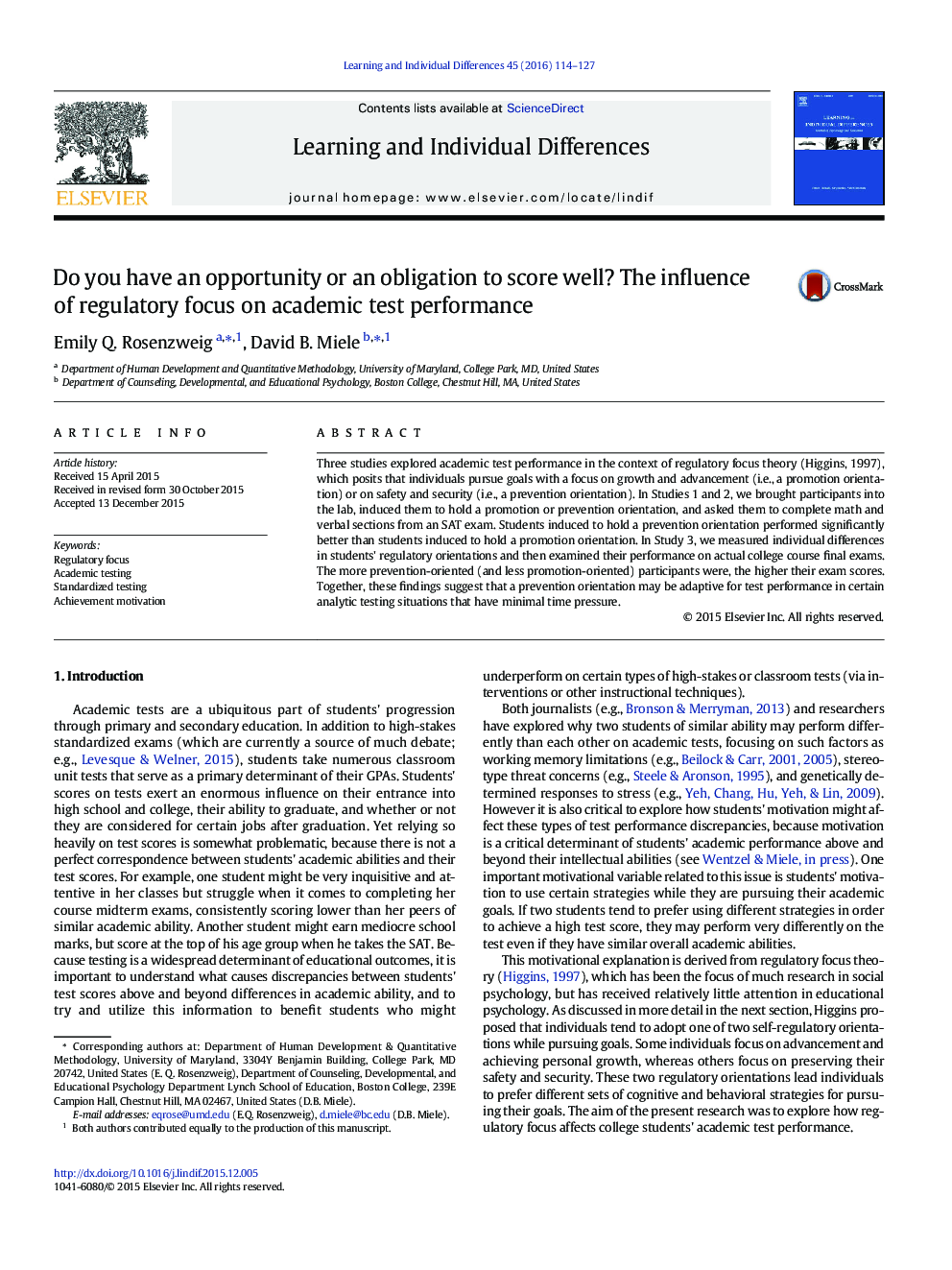| Article ID | Journal | Published Year | Pages | File Type |
|---|---|---|---|---|
| 364508 | Learning and Individual Differences | 2016 | 14 Pages |
•Three studies explored how students’ regulatory focus influenced their academic test performance.•Students with a prevention orientation performed better than those with a promotion orientation on two SAT-type lab exams.•Chronically prevention-oriented students also performed better on their actual college midterm and final exams.•Holding a prevention orientation seems to be adaptive for performance on low-stakes, loosely-timed exams.
Three studies explored academic test performance in the context of regulatory focus theory (Higgins, 1997), which posits that individuals pursue goals with a focus on growth and advancement (i.e., a promotion orientation) or on safety and security (i.e., a prevention orientation). In Studies 1 and 2, we brought participants into the lab, induced them to hold a promotion or prevention orientation, and asked them to complete math and verbal sections from an SAT exam. Students induced to hold a prevention orientation performed significantly better than students induced to hold a promotion orientation. In Study 3, we measured individual differences in students' regulatory orientations and then examined their performance on actual college course final exams. The more prevention-oriented (and less promotion-oriented) participants were, the higher their exam scores. Together, these findings suggest that a prevention orientation may be adaptive for test performance in certain analytic testing situations that have minimal time pressure.
